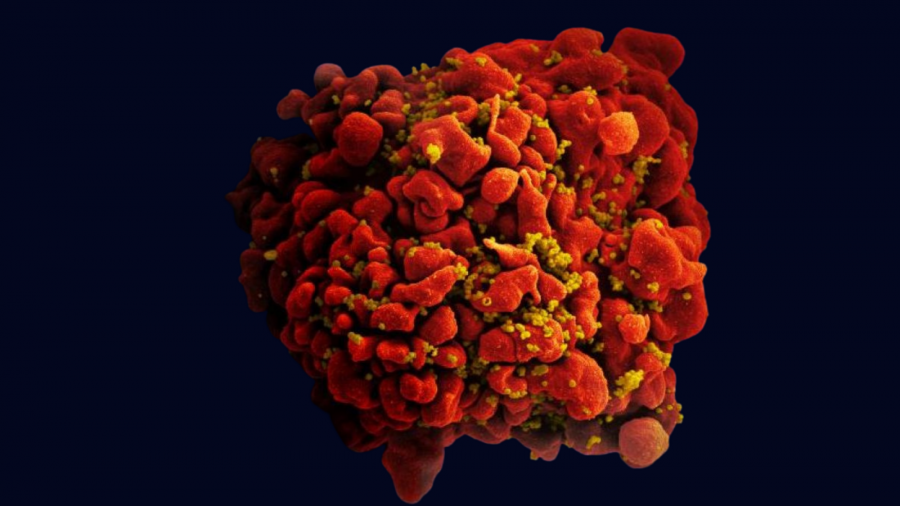Expert comment - NICE approves first long-acting injectable HIV treatment
18 November 2021 London School of Hygiene & Tropical Medicine London School of Hygiene & Tropical Medicine https://lshtm.ac.uk/themes/custom/lshtm/images/lshtm-logo-black.png
Scanning electron micrograph of an HIV-infected H9 T-cell. Credit: NIAID
NHS watch-dog, the National Institute for Health and Care Excellence (NICE), has published guidance recommending the use of the first long-acting injectable treatment for HIV-1. The recommendation of cabotegravir with rilpivirine could provide another treatment option for adults with HIV-1 whose current antiretroviral medicines have kept the virus at a low level and there is no suspected viral resistance and no previous failure of other anti-HIV-1 medicines.
Reacting to the news, Professor Alison Grant, Dean of the Faculty of Infectious and Tropical Diseases at the London School of Hygiene & Tropical Medicine, said: “This approval is very exciting, and has the potential to improve access to life-changing treatment for many. Millions of people living with HIV worldwide live normal, healthy lives thanks to modern antiretroviral treatment, usually taking one or a few tablets once a day. It is great news that this will be another option in the range of antiretroviral treatments for people with HIV in the UK, as some people have difficulty taking tablets regularly – perhaps due to challenging circumstances, including the stigma around HIV, or not having secure accommodation and nowhere to store their medication. However, it’s important to note that this is a recommendation from NICE, and there is still much to do before clinics can give these injections to patients; this will take at least several months.”
If you enjoyed this article and would like to build a career in global health, we offer a range of MSc programmes covering health and data, infectious and tropical diseases, population health, and public health and policy.
Available on campus or online, including flexible study that works around your work and home life, be part of a global community at the UK's no.1 public health university.